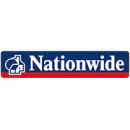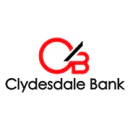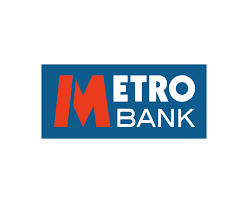Secure the Right Commercial Mortgage for Your Business
We work with more than 120 mortgage lenders, including

Owner-Occupied Mortgages
Looking to buy or refinance a space for your own business? This option is tailored for business owners ready to invest in their premises.
Finance up to 75% of the property’s value.

Buy-to-Let Mortgages
Planning to rent out commercial spaces? This is ideal for investors seeking steady rental income.
Access up to 70% LTV to grow your portfolio with confidence.

HMO Mortgages
For landlords managing Houses in Multiple Occupation (HMOs), this mortgage is built to support higher-yield, multi-tenant properties.
Typically offers up to 60% LTV.

Finance up to 70% LTV — fast, flexible, and efficient.

Borrow up to 65% of the project value.

Typically up to 70% LTV with simplified management.
Our specialist lending options are designed to give you the agility and support you need to
succeed in today’s competitive property market.
Why Choose Mortgage-Tek for Specialist Finance?
At Mortgage-Tek, we provide fast, flexible specialist finance across the UK—tailored to developers, landlords, and property investors. From auction purchases to complex developments, our expert team ensures your funding works on your timeline.

Submit Your Application

We Review Requirements
Our team will assess your application and discuss your financial goals to recommend the best mortgage option for you.

Get Approved
Once your application is processed, we’ll guide you through the approval process and ensure you’re ready to secure your financing.
TESTIMONIALS
What people say
Mo is extremely professional and has helped me on multiple occasions with new mortgage and remortgage transactions for the past 3 years. I found MortgageTek and the team to be efficient, have constant communication with me every step of the way, and be outstanding plus helpful in resolving any issues that may arise along the way. I highly recommend MortgageTek for any future transaction as Mo always gets good rates

GORETTY DIAS
Customer
Would thoroughly recommend using Mortgagetek if you are a contractor. Mortgage applications are confusing enough as it is, so it’s great you can depend on the application being made smoothly by the team at Mortgagetek. Kate was excellent in keeping me updated and dealing with any questions I had. Will use them again.
JAMES MORTON
Customer
Mo has helped me with multiple mortgage brokering both for new, remortgage and BTL transactions for about 4 years. I’ve found Mo and his team to be efficient, have clear and constant communication with me every step of the way, and very helpful to resolve any issues that may arise along the way. I unreservedly recommend MortgageTek.

SEUN OLOWOJEBUTU
Customer
Contact Us
Get in Touch For Our Expert Mortgage Advice
Looking for the right mortgage solution? Whether you’re securing a better rate, switching deals, or exploring let-to-buy options, our experts are here to help. Get in touch today for tailored mortgage advice and find the best deal for your needs—hassle-free and straightforward!
| Call Us | 020 3827 8558 |
| Email Us | info@mortgage-tek.co.uk |
| Address | 31, Metro Centre, Dwight Rd, Northwood, Watford WD18 9SB |
| Opening Hours | Mon–Fri (8:30am–7pm) Sat (9am–5pm) |
Frequently Asked Question
1. How are commercial mortgage rates decided?
Commercial mortgage interest rates are determined based on a range of factors that help lenders assess the risk of the loan. These include the total loan amount, where larger loans are often considered riskier and therefore attract higher interest rates, and the loan-to-value (LTV) ratio — the more you’re borrowing compared to the value of the property, the higher the rate might be. Lenders also evaluate your business’s financial strength, your personal credit history, and, in cases of commercial property investment, the quality of the lease and tenant. Each lender uses its own pricing model, so rates can vary across the market. At Mortgage-teK, we help you compare rates and find the best commercial mortgage for your circumstances.
2. What’s the difference between fixed and variable commercial mortgage rates?
A fixed commercial mortgage rate means your interest rate will remain the same for a set period — this could be anywhere from two years to the full term of the mortgage. It offers stability and helps with budgeting, especially if you’re concerned about future rate increases. A variable commercial mortgage rate, on the other hand, can go up or down depending on movements in financial benchmarks such as the Bank of England Base Rate or LIBOR. While variable rates may start lower, they carry more risk as your repayments could rise. Mortgage-teK can help you decide whether a fixed or variable rate better suits your business strategy.
3. Should I fix my commercial mortgage rate?
Whether to choose a fixed or variable commercial mortgage rate depends on your goals and risk appetite. A fixed rate provides peace of mind by keeping monthly payments consistent, which is useful for long-term planning and cash flow management. If market stability is important to you, a fixed rate might be ideal. However, if you’re comfortable with potential fluctuations and want to benefit from lower rates when the market dips, a variable rate could offer savings. At Mortgage-teK, we assess your situation and help you make the best decision based on market trends and your business objectives.
4. What are the current commercial mortgage rates in the UK?
Commercial mortgage rates in the UK can vary significantly depending on your specific needs, but they typically range between 6% and 12%. Factors such as the loan amount, the type of property, whether it’s for investment or owner-occupation, and your overall financial profile all influence the rate. For example, investment properties are usually considered higher risk and may attract higher rates. Because rates can change frequently, Mortgage-teK provides real-time comparisons and advice to help you access the most competitive commercial mortgage rates available.
5. Do I need a commercial mortgage?
A commercial mortgage is ideal if you’re purchasing a property for business purposes or investing in commercial real estate. You might need one if you’re a business owner looking to buy premises for your operations, a commercial landlord acquiring property to lease to another business, or a residential investor purchasing a multi-unit block for rental income. If you’re refinancing a portfolio or seeking better terms across multiple properties, a commercial mortgage may also be suitable. Mortgage-teK helps a wide range of clients secure commercial mortgage solutions that match their investment or operational goals.
6. What types of property require a commercial mortgage?
A commercial mortgage can be used to finance various types of property, including offices, retail shops, industrial units, warehouses, care homes, doctors’ surgeries, dental practices, pharmacies, veterinary clinics, guesthouses, hotels, blocks of flats, agricultural land, and funeral parlours. Whether you’re buying for business use or investment, Mortgage-teK works with specialist lenders who understand the unique risks and requirements associated with each property type.
7. Which commercial mortgage is right for me?
Choosing the right commercial mortgage depends on several factors — how you intend to use the property, the deposit available, the term you prefer, and the financial health of your business. You’ll also need to consider the mortgage structure, repayment options, and interest rates. It’s important not just to look at introductory offers but to compare total costs, flexibility, and risk. At Mortgage-teK, our advisers review your situation in detail and match you with tailored commercial mortgage products from a wide panel of UK lenders.




















